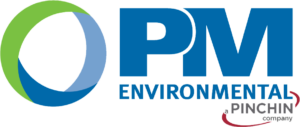Environmental Due Diligence: Perspectives on this Year and the Year Ahead
In April, an article in the Detroit Free Press predicted that we would remember 2020 as “the year of what we missed.” From the simplest family get together to the Summer Olympics, nearly every aspect of ‘normal’ life was put on hold to minimize the spread of the COVID-19 virus.
While the pandemic dominated 2020 and promises to remain center stage for the foreseeable future, it is by no means the year’s only story. Here, two PM Environmental due diligence experts reflect on the year that was, and consider the year to come.
“For the clients, lenders and regulators we work with, the pandemic has changed business, but it hasn’t stopped it,” said Principal and Vice President Steve Price, CHMM. “At PM Environmental, we’ll look back on this as ‘the year we learned to do things differently.’”
Kristin Gable, National Manager of Due Diligence, agreed. “In big ways and small, we’ve adjusted, and we’ll continue to adjust, to keep delivering best-in-class due diligence services regardless of market conditions.”
Both Challenges and Opportunities for Lenders and Borrowers
Starting in March, widespread shutdowns and stay-at-home regulations slowed the economy and made lenders even more risk-averse. “We continue to see banks minimizing their risk exposure,” Price said. “But while they are increasing loan loss reserves in anticipation of potential foreclosures, it’s not at the same level as the downturn of 2009/2010.”
“So far, we haven’t seen an uptick in commercial foreclosures,” Gable continued. “Banks seem to be doing all they can to work through issues with their commercial borrowers, to avoid taking properties back.”
Not entirely driven by the pandemic, banks also continue to encourage borrowers to pursue SBA (U.S. Small Business Administration) financing. With tools such as the SBA 504 loan, the government assumes a percentage of the loan and the bank holds the balance, significantly reducing the bank’s risk.
“From the borrower’s point of view too, SBA financing is a great entry point for commercial development,” continued Price. “But developers may be surprised to learn that, when it comes to environmental regulations, SBA loans add more complexity to a deal. Part of our job is to educate them on challenges of meeting the SBA’s high bar for regulatory approvals if contamination is discovered. That includes explaining the need for additional due diligence when outstanding environmental issues are identified on a site. While it may be the best available financing, an SBA loan can end up adding significant effort, time and costs to get to the finish line.”
Depending on their industry and their specific goals, an uneasy economy can spell either hardship or opportunity for property owners and developers. “For those holding mortgages on properties that are struggling to generate revenues – like hotels, restaurants and bars – the downturn has been devastating.” Gable explained. “But some of our clients see this as a good time to pick up property at distressed pricing.”
An example of the latter are entrepreneurs looking to take advantage of local ordinances legalizing the cultivation and sale of cannabis. “Developers are looking for affordable facilities in which to grow cannabis,” said Price. “Some communities in the greater Detroit area are home to older buildings that are ideal for this application.”
“Municipalities see this new market as an opportunity for additional income from taxes and user fees,” Gable added. “To drive investment, they may offer added incentives for redeveloping contaminated properties.”
A Tough Regulatory Environment Made Tougher
Cooperation from regulators and access to public records are critical to the due diligence process. Although PM maintains a robust database of existing site records, staff members need to review records maintained by municipalities and regulatory agencies to fully understand the environmental history of a property. Usually archived in paper form only, these records can show how a site was used in the past, as well as any past contamination and cleanup events.
In response to COVID-19, national, state and local government offices were among the first places to transition from in-person to remote services. That switch, which will likely remain well into 2021, complicates several steps in due diligence. “Regulators’ response times have slowed significantly, and it’s been difficult to impossible for our team to access public databases and property records,” Price explained. “We’ve really had to rethink how we do business to keep the due diligence process moving forward for clients.”
Rising to Meet the Moment
PM Environmental has responded to the pandemic by coming together (in new, socially distanced ways), learning from each other, and continuing to put clients’ needs first.
“Because environmental compliance services are considered ‘essential,’ we’ve been able to maintain a field staff on job sites,” Price noted. “We’re also fortunate that our company was ahead of the curve when it comes to enabling staff to work remotely. Long before COVID, we had flex-time options and IT support in place. Regardless of where we’re located, the work gets done with minimal hitches or delays.”
“Everyone is looking forward to the business climate improving next year, once a COVID-19 vaccine is distributed,” he continued. “While it’s been a tough year, in many ways 2020 has made us a stronger, more nimble company. We’ve never been in a better position to help our clients navigate the challenges of due diligence.”
“Throughout the company, the flexibility and commitment of our people has been impressive,” Gable added. “We’re proud of what we’ve accomplished this year, and we’re taking that momentum and optimism into the new year.”
Publication Details
Date
December 17, 2020



